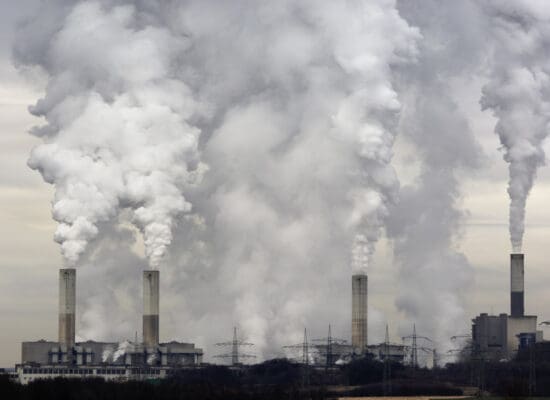Latest just energy transition news
Where is the money the EU promised workers to go green?
Just 3% (EUR 735 million) of the EU’s EUR 26.7 billion Just Transition Fund has been spent since 2021, despite the fund’s aim to support workers in fossil fuel regions. While nearly half of the funds have been allocated, actual spending remains low. Five member states—Belgium, Cyprus, Italy, Slovenia, and Spain—have spent no money to date, despite having over EUR 3 billion available to them. Member of European Parliament Ciaran Mullooly warns that bureaucratic hurdles are leaving towns and workers stranded. With only two years until the 2027 cut-off, experts warn of rushed deployment, risking misuse and weakening climate policy support.
Indonesian coal industry risking a tough transition as demand declines, report says
Indonesia’s coal industry, responsible for 3.6% of GDP and tens of thousands of jobs, is facing urgent pressure as China and India—its main buyers—cut coal imports. Indonesia produced a record 836 million tonnes in 2024 (up 8%), but exports fell to a 3‑year low in early 2025. With 66% of exports going to China and India, and demand declining, Energy Shift, a Jakarta-based energy think tank, warns that diversification towards clean energy is essential to avoid a disruptive and costly transition later.
Eskom reports progress on 5-GW "repowering" pipeline as USD 2.6 billion CIF approval is secured
Eskom has secured USD 2.6 billion in concessional funding from the Climate Investment Funds (CIF) to repurpose six coal power stations—Arnot, Camden, Grootvlei, Hendrina, Kriel, and Komati. The funding includes USD 1.1 billion in grants and low-interest loans from development partners (among them African Development Bank Group, World Bank, and Kreditanstalt für Wiederaufbau) and will finance solar PV, battery storage, wind, and gas projects. It also supports transmission upgrades and socio-economic development in the country. The package is the largest-ever approval under CIF’s Accelerating Coal Transition investment programme.
Will Colombia's upcoming solar park lead to a new era for Cesar? [Spanish]
Colombia’s upcoming Parque Solar Upar in Valledupar, Cesar, is set to be the country’s largest solar park with a planned capacity of 250 MW. Developed through a partnership between the Ministry of Mines and Energy, the Cesar government, and the Renewable Energy Fund (in Spanish, Fondo de Energias no Convencioales y Gestión Eficiente de la Energia [FENOGE]) under the Colombia Solar programme, it aims to benefit over 600,000 residential users in low-income urban and rural areas, reducing their electricity bills by up to 50%. Unlike previous corporate projects, Upar integrates 100 neighbourhood solar installations and 10 rural distributed-energy schemes, emphasising social equity in energy access.
Indigenous women of Borneo fight coal mining impacts by growing chillies [Indonesian]
Faced with the environmental and economic harms of coal mining, Indigenous Dayak women in Indonesia have begun cultivating chilli gardens as an alternative source of income. These gardens provide food security, restore degraded land, and reduce dependence on mining-related jobs. Their efforts represent a grassroots response to the impacts of fossil fuel extraction, offering a locally driven, sustainable path forwards for communities affected by coal operations in East Kalimantan.
"This is the end of coal in Ireland": Country shuts down last plant ahead of schedule
Ireland officially closed its last coal-fired power plant—Moneypoint, in County Clare—in June 2025, 6 months ahead of schedule, marking the end of coal use nationwide and making Ireland the sixth European country to fully phase out coal. The 915-MW station will remain available as an oil-fired emergency back-up until 31 March 2029, ensuring grid stability during the transition.
Grangemouth's green future backed by first-of-its-kind transition plan
Scotland’s flagship industrial hub is set to lead the country’s clean energy transformation with the launch of the Grangemouth Industrial Just Transition Plan—the first regional just transition plan of its kind. Developed collaboratively by government, industry, workers, and the community, it outlines 21 key actions to attract investment, create skilled jobs, and decarbonise the economy. Measures include a GBP 25 million Just Transition Fund, an industrial skills programme, a new regulatory hub, and an industry-led decarbonisation and investment strategy.
Three communities in Valparaíso, Chile, to benefit from new community solar parks [Spanish]
Three municipalities in Chile’s Valparaíso region—San Antonio, Calle Larga, and La Calera—have been selected to develop community solar parks under a government-backed initiative. Led by the Ministry of Energy and the Energy Sustainability Agency, the project aims to reduce electricity bills for vulnerable households by feeding solar energy into the grid. Inspired by a successful pilot in Talagante, the programme could benefit up to 300 families per community and significantly cut local energy costs.
Who really profits from South Africa's Just Energy Transition?
A new Open Secrets report has revealed that 65% of South Africa’s just energy transition grant funding—over ZAR 300 million—has gone to international consulting firms like Boston Consulting Group, Deloitte, and PricewaterhouseCoopers, while less than 25% has reached local organisations. The report questions whether firms profiting from polluting industries can genuinely guide a “just” transition. Their advice often promotes market-based solutions like carbon offsetting, which critics argue benefit major emitters and lack the ambition for the systemic social and economic change the transition requires.
Abandoned coal mines can host over 10% of global solar capacity
A new Global Energy Monitor report has found that abandoned coal mines worldwide could host up to 288 GW of solar capacity—over 10% of current global capacity. This includes 103 GW on already closed sites and 185 GW on mines expected to shut by 2030. The study highlights strong job potential, with 260,000 long-term solar jobs possible, far surpassing the number of coal job losses. Over 90% of these sites lie within 10 km of grid infrastructure, though land remediation and rights issues remain major challenges.
India's coal ministry to launch RECLAIM framework for mine closure, revival
India’s Coal Ministry has introduced the RECLAIM framework to guide sustainable mine closures and foster post-closure redevelopment. Developed by the Coal Controller Organisation and Heartfulness Institute, it promotes community-led, socially equitable planning—prioritising women and vulnerable groups—and aligns with Panchayati Raj (a system of local self-government in rural areas) institutions. The framework includes practical tools, such as templates, social impact assessments, and monitoring systems, and focuses on ecological restoration, asset repurposing, and alternative livelihoods.
Just transition to renewable energy "would boost global GDP by 21%"
A just transition to renewable energy could boost global GDP by 21% by 2060 and deliver USD 20.4 trillion in energy system savings, according to a new study by the United Nations Development Programme, Octopus Energy, and the Pardee Institute. The report emphasises that combining clean energy targets with social protections—such as support for jobs and livelihoods—can accelerate decarbonisation while reducing poverty. It urges governments to adopt inclusive policies to ensure that the benefits of the energy transition are widely shared.
In Latin America, energy transition sparks a rise in human rights lawsuits
A new report has revealed a sharp rise in the number of human rights lawsuits linked to energy transition projects in Latin America. Of 95 global cases since 2009, over 50% occurred in the region, with Indigenous Peoples filing nearly half of all cases recorded worldwide. Most cases have targeted mining for transition minerals, such as lithium and copper, or renewable energy projects. Key concerns include lack of consultation, environmental harm, and impacts on water—highlighting the need for stronger due diligence and rights protections.
Just Transition Council formed in Montenegro
Montenegro has formed a Just Transition Council, chaired by Energy and Mining Minister Admir Šahmanović, to oversee a fair shift from fossil fuels to sustainable energy. The council includes ministers, industry leaders, trade unions, academics, and local officials—in particular, from the coal region Pljevlja. Its mandate is to coordinate transition policies, monitor implementation, and recommend improvements to legislation. This initiative aims to create jobs, align education with green economy needs, and empower communities in affected regions.
Mexican Union of Electricians proposes participation in the country's energy transition [Spanish]
The Mexican Union of Electricians (SME) has submitted a comprehensive energy transition proposal to President Sheinbaum, advocating for union participation in the country’s shift towards clean energy. They are calling for tariff justice—urging large consumers to subsidise fair rates for basic users—and the modernisation of the national grid. The plan emphasises the inclusion of workers, civil society, and consumers, highlighting SME’s technical expertise. SME’s women members intend to seek a prompt meeting with the President at Palacio Nacional.
Colombian government to reactivate 20 stalled wind and solar energy projects in La Guajira [Spanish]
Colombia’s Ministry of Mines and Energy, led by Minister Edwin Palma Egea, will reactivate 20 stalled solar and wind projects in La Guajira, adding 2,400 MW—40% of the government’s 6 GW renewable goal—as part of the 6 GW Plus plan. Backed by major firms and agencies, the move is expected to generate over 16,000 jobs, reduce carbon dioxide (CO₂) emissions by 16,000 tonnes, benefit 4 million families, and involve Wayuu Indigenous communities as board members and shareholders—fostering a fair, community-focused energy transition.
Thai Cabinet approves the use of tax incentives to support renewable energy [Thai]
Thailand’s Cabinet has approved a new measure allowing homeowners to install rooftop solar panels and receive a personal income tax deduction of up to THB 200,000. The policy, announced by Deputy Prime Minister and Energy Minister Preepan Salirathavibhaga, aims to promote renewable energy and energy conservation nationwide. By categorising solar installations as a deductible expense, the government hopes to encourage households to adopt clean power solutions and reduce reliance on fossil fuels.
Opinion: When short-term jobs aren't enough: Lessons from Komati's just transition
The shutdown of South Africa’s Komati power station in 2022 has attracted ZAR 7 billion through the Eskom Just Energy Transition Project, but its 4,600 residents rarely enjoy tangible benefits like sustainable employment or local economic revival. Well-meaning working groups and interventions often face slow decision making and delayed implementation due to limited coordination. Communities in transition need more than a quick fix; they need partners who will walk the journey with them, write Juanita Pardesi and Siphesihle Qange.
Stay Informed and Engaged
Subscribe to the Just Energy Transition in Coal Regions Knowledge Hub Newsletter
Receive updates on just energy transition news, insights, knowledge, and events directly in your inbox.


